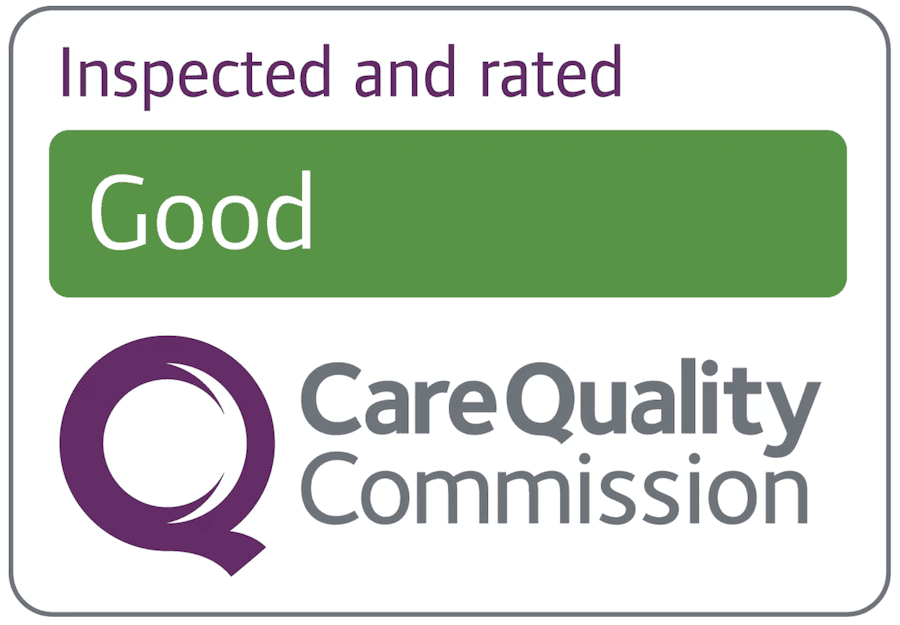Top 5 Things Americans Need to Know to Understand England’s Free Healthcare

Many Americans are drawn to the UK for its free healthcare. Here are 5 important things you need to know to understand England’s free healthcare system- the NHS.
1. Is England’s healthcare system really free?
The National Health Service (NHS) was established in July of 1948, offering all ordinary residents in the UK the right to free public healthcare. This includes a wide range of services such as hospital care, physician visits, maternity care, community-based healthcare, mental health services, and assistive devices—all free at the point of delivery.
For Americans moving to the UK, it is important to understand how the NHS operates, as it provides comprehensive care without requiring upfront payment when services are accessed.
The NHS Constitution of England emphasizes that healthcare services are provided based on clinical need, not an individual’s ability to pay. As a result, you will never receive a bill or be asked to pay for NHS services, and this is not influenced by your income or employment status
The NHS is primarily funded through taxpayer contributions, with the average Brit paying between 18% and 35% of their wages, depending on their income level.
Treatment May Be More Conservative
Because the England’s healthcare system belongs to the people, it has a stated commitment to “providing the most effective, fair, and sustainable use of its finite resources”. If you have a new issue, your doctor may be less likely to immediately order extensive testing and lab work, although you have a right to all necessary testing and treatment.
It’s unlikely that your physician would immediately order an MRI for something like back pain, as is often the case in the United States. Instead, doctors follow a more conservative approach and may require additional evidence or documentation to justify the need for certain tests or treatments.
NHS Immigration Health Surcharge
While some visitors are entitled to free healthcare in the UK, not everyone who enters the UK on a visa is considered an “ordinary resident”. You can use the Home Office’s Ordinary Resident Tool to determine your status.
Depending on the type of visa you use to enter England, you may also be required to pay an annual NHS surcharge, in addition to the taxes that fund the NHS. This surcharge is typically £624 per year for most visa holders, with a reduced fee of £470 for students and those under 18.
This fee helps cover your access to healthcare services while living in the UK, and the amount can vary depending on your visa status and length of stay.Depending on what visa you use to enter England, you may also need to pay an annual NHS surcharge in addition to the amount you will pay in taxes.
Healthcare is Not Tied to Employment
Healthcare in the UK is not tied to your job. Whether you leave your job, take time off, go on sick leave, or decide to start your own business, you will not lose access to NHS coverage. This means that healthcare remains consistent and reliable, regardless of your employment status, ensuring that everyone has the right to care when needed.
In fact, it’s not uncommon for UK citizens to take a break from their jobs during their careers to travel or take care of a family member. This is made possible by universal healthcare and flexible working policies.
2. How much will I pay for my prescriptions?
Prescriptions are free for some people, including those over 60 and under 16, students between 16 and 18, new mothers, patients that have a listed medical condition, and in certain other circumstances.
The cost of outpatient prescriptions is currently capped at £9.65. Even prescriptions that come with eye-watering price tags in the United States are £10 or less in the UK. This can make a significant difference in the lives of British residents, especially the 277,000 who rely on insulin.
Even some drugs that have price tags over $1,000,000 per dose in the United States are available to British residents due to negotiations between the NHS and certain drug companies.
Although prescriptions are cheaper, fewer new drugs are being approved in post-Brexit UK when compared with the US. Patients in the US also have more flexible access to many drugs, although they will pay more for it.
The UK’s National Institute for Health and Care Excellence is working to decrease the time it takes for new drugs to be approved, which should provider faster access in the future.

3. What is the quality of England’s healthcare system?
In 2021, the NHS lost its rating as the best healthcare system in the world. In 2022, U.S. News & World Report ranked the UK 7th out of 10 countries with the best public healthcare systems.
Despite the NHS’s foundational role in England’s free healthcare, the system has faced increasing pressure in recent years, with concerns over funding, staffing shortages, and long wait times.
While the UK’s healthcare system still offers comprehensive care, these rankings highlight challenges in health outcomes, especially in comparison to countries with more robust healthcare investments and quicker access to treatments.
Wait Times May Be Longer
You may find you have to endure longer wait times for care. There is growing frustration at the length of time Brits are waiting to access care, although this is not always the case.
Access to care can also differ greatly from one area to another, an inequity referred to as the “post code lottery“. This means that the quality and availability of NHS services can depend on where you live, with some regions experiencing shorter wait times and better access to treatments than others
In 2023, the national average ambulance wait time for even the most urgent emergencies, such as heart attacks and strokes, was 1 hour, 32 minutes, and 54 seconds. This is significantly longer than the NHS’s target response time of 18 minutes.
The discrepancy between the target and actual wait times highlights the increasing strain on emergency services, driven by factors like staff shortages, high demand, and limited resources. minutes.
You can check ambulance wait times and other healthcare service availability on the NHS My Planned Care page, which provides up-to-date information on wait times for various treatments and services.
4. Is maternity care covered?
Maternity (or antenatal) care in England is not only free for ordinary residents, but it may also offer a higher level of safety compared to having a baby in the US.
The NHS provides comprehensive care throughout pregnancy, childbirth, and postnatal care, with lower maternal mortality rates than in many parts of the US, making it an attractive option for expectant parents.
If you came from abroad, you may or may not be considered an ordinary resident. While you will not be refused care, you may be billed fees for any maternity services you receive.
As of 2021, non-residents in England can expect to be charged a minimum of approximately £7,000 for maternity care, which includes antenatal, childbirth, and postnatal services.
To determine if you qualify as an ‘ordinary resident’ with the right to free NHS maternity care, you can use the Ordinary Residence Tool. This tool provides examples of relevant questions and documents that can help assess your residency status.
Women who are legally employed in England are also entitled to 52 weeks of maternity leave, with 90% of their pay for the first 33 weeks.

5. How can I check the quality of the healthcare in a specific area?
The Care Quality Commission (CQC) independent regulator for health and social care in England. They regularly perform on-site inspections, issuing reports and ratings that range from ‘outstanding’ to ‘inadequate.’ These ratings provide valuable insight into the quality of care you can expect within the NHS and help ensure accountability across the system.
To look for reports for a specific practice or hospital in a particular area, search on their website. You can view ratings and read full reports with detailed information on various quality measures.

What’s the future of England’s healthcare system?
The NHS has been called the closest thing the English have to a national religion, serving as a deeply ingrained source of national pride.
However, many Brits across the political spectrum feel that the NHS is at a breaking point and in the worst state ever seen in its 75-year history. Staffing shortages along with frequent physician strikes are compounding the stress on their treasured system.
There is significant debate surrounding how to fix the NHS, with many Brits fiercely opposed to privatization, viewing it as a threat to the core values of the service. On the other hand, some argue that privatization may be the only way to ensure the NHS can continue to provide high-quality care in the face of increasing demand and limited resources.
This divide often sparks heated discussions about the future of healthcare in the UK, with each side presenting compelling arguments about the long-term sustainability of the NHS.
Despite the long wait times for access to care, the British continue to express a deep sense of gratitude and appreciation for the NHS and its staff.

My Personal Experience Using England’s Free Healthcare System
After carefully researching our move to England, we decided to live in York because of its access to good healthcare, excellent schools, and high safety ratings. After living in England for the last year, every member of my family has now used the NHS.
We have found the staff to be caring, competent, and thorough. On most occasions, we have been able to access care within the same timeframe that I would expect in the US.
I pay less than £10 a month for the only prescription I take, which was $100 dollar a month in the US.
On the other hand, I waited weeks for a referral to get an ultrasound and eventually ended up paying £249 to have it done privately.
It can be hard for Americans to imagine walking into a hospital for care without having to think of the cost. But the British can’t understand how we cope with the added stress of a bill when going through a health challenge.

When asked to sum up their opinion of England’s healthcare system, many Brits will say, “You may not get everything that you want, but you will get what you need.”
So far, I agree with them.
These are 5 things you should know about England’s healthcare system before you move. If you have additional questions, please leave them in the comments!
How to Spend the Perfect Summer Day in an English Garden
Manor homes are one of the most enchanting pieces of England’s history—these grand estates, with their sprawling gardens and centuries-old stone walls, tell stories of aristocrats, artists, and generations of caretakers. Originally built in the medieval period as the homes of local lords, manor houses were the center of village life, often surrounded by farmland…
How to Become an International Travel OT in the UK
Occupational therapists are in high demand all over the world. This is your guide to becoming an international travel OT in the UK! Working as an OT in the UK This post covers topics related to how to become registered to work in the UK. You can find out more about my personal experience and…
Is York, UK a Good Place to Live? Why We Chose to Settle in This Beautiful City
Is York, UK a Good Place to Live? Here’s why we moved our family of five to this historic city! When we first started thinking about relocating to the UK, York wasn’t on our list. But after a scouting trip and a lot of research, we realized York had everything we needed—and more. Here’s why…









Leave a Reply